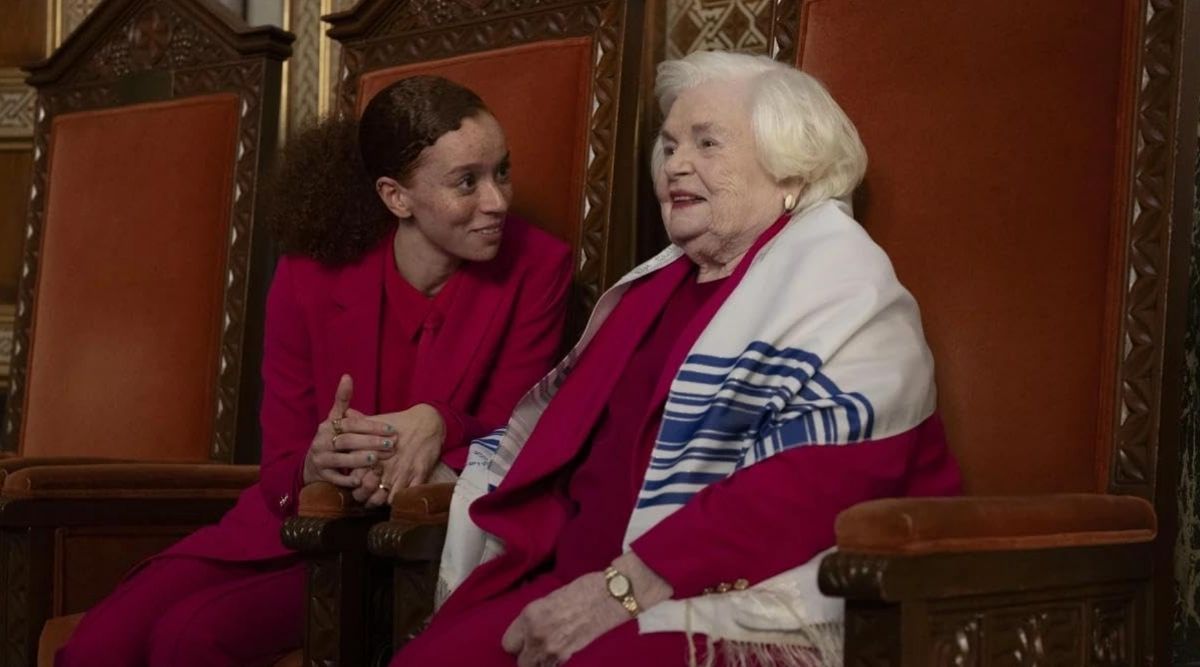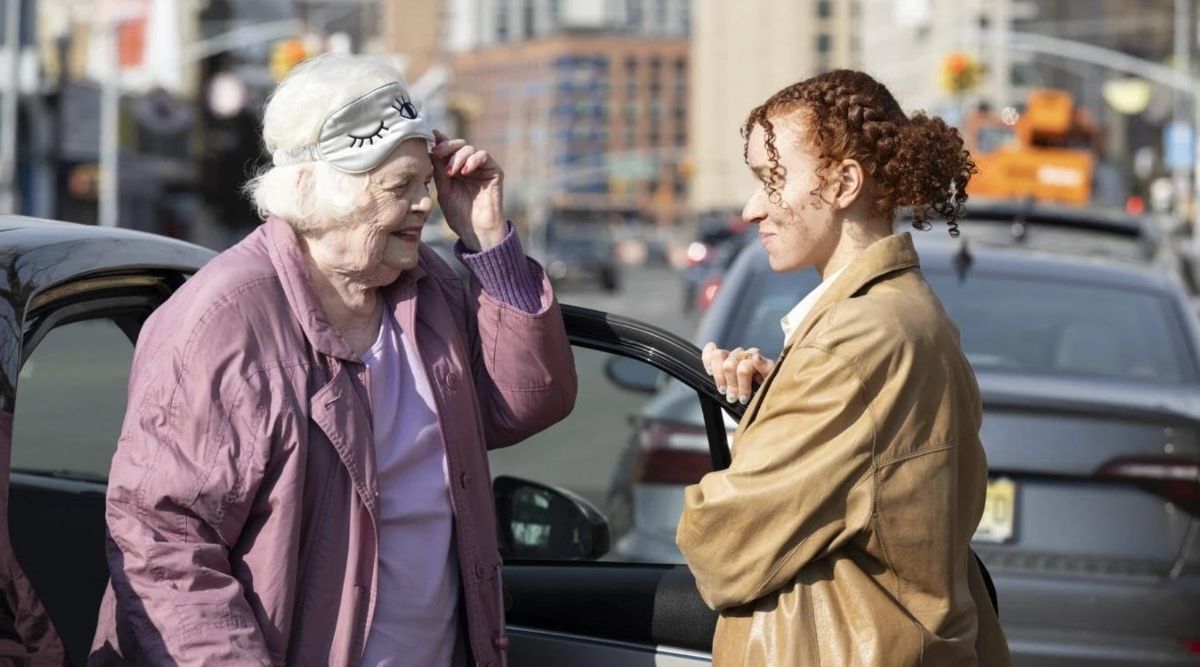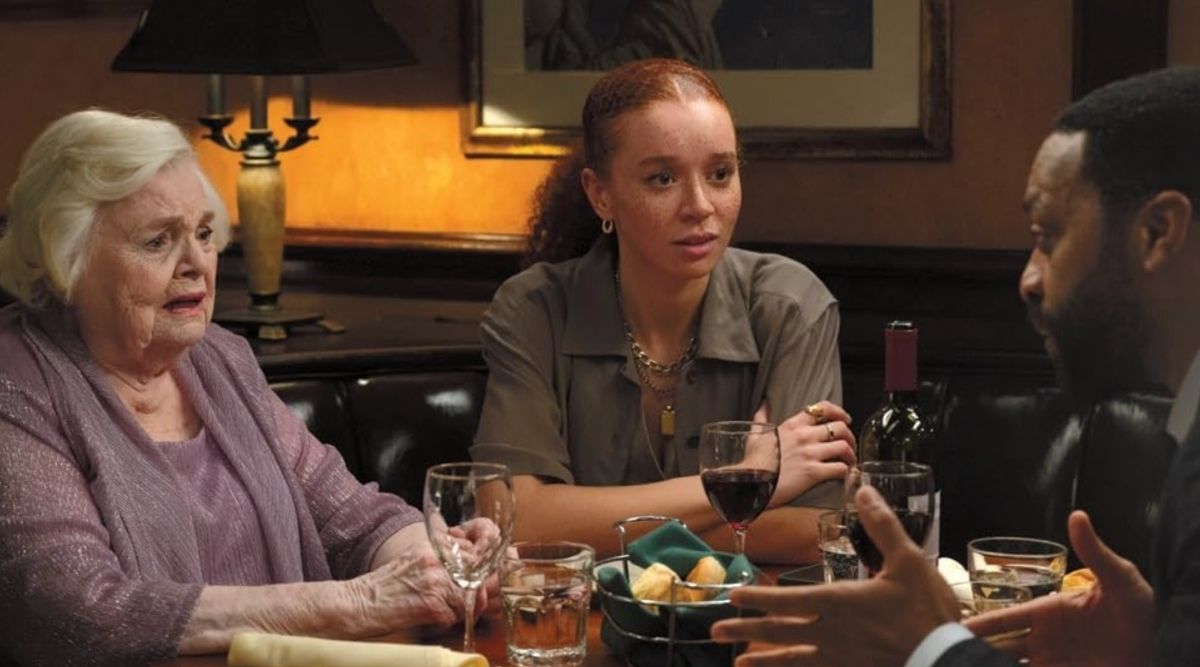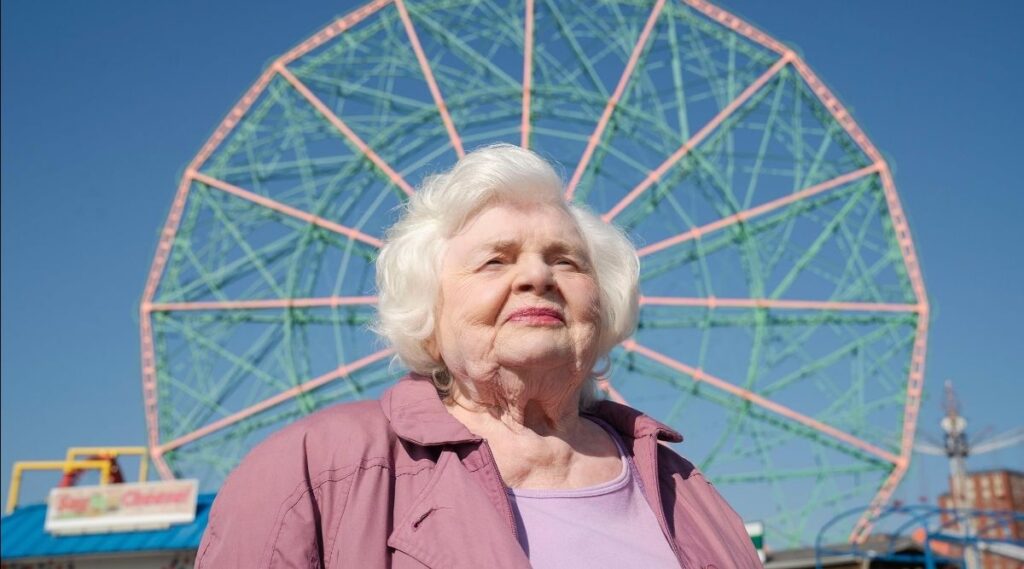When Eleanor’s (June Squibb) lifelong best friend and roommate, Bessie (Rita Zohar), dies, Eleanor moves in with her daughter (Jessica Hecht) in Manhattan. At the age of 94, it’s hard to make new friends and start life over again in a city you’ve never lived in. Directed by Scarlett Johansson in her directorial debut from a screenplay by Tory Kamen, Eleanor the Great is a movie about how one big lie helps Eleanor reconnect with loved ones and build new relationships in unexpected ways.
Eleanor was born in the United States and has somewhat of a guilt complex about how most of her Jewish peers were Holocaust survivors, and she is not. It somewhat mirrors the fact that June Squibb herself converted to Judaism in the ’50s and thereby can’t relate to the experience of having been Jewish in the 1920s-40s that her peers endured.
When Eleanor goes to the local Jewish Community Center and accidentally winds up in a Holocaust survivors’ support group, instead of admitting she isn’t one, she tells Bessie’s survivor story as if it were her own. Over the course of the movie, Eleanor the Great does a really good job exploring why somebody as forward and honest as Eleanor would do such a thing.
Eleanor the Great offers a wonderful intergenerational relationship.

You can empathize with her. Beyond the guilt complex, she’s also really lonely. Her whole life was uprooted unexpectedly, and now, at 94, she has to make new friends and find a way to keep living when most everyone her age is no longer alive. When a young, aspiring writer, Nina (Erin Kellyman), hears Eleanor’s story and starts befriending her, things start to spiral out of control.
Nina has recently experienced tragedy, too. Her mom died six months ago and her father, Roger (Chiwetel Ejiofor) has been really distant ever since. Nina’s isolation is a neat parallel to Eleanor’s. Their experiences are obviously quite different, but they’re both mourning, and they’re both lonely. The friendship they forge is especially endearing. Their deeply emotional conversations are equally moving.
Together, they start to heal, despite the big lie sitting in the middle of their relationship. Nina is working on a big journalism class project about Eleanor, to the point where her TV journalist father even becomes interested and passionate for the first time since his wife’s passing. Obviously, the lie has to come crashing down on everyone eventually, but not before Eleanor decides to have an adult Bat Mitzvah ceremony first.
June Squibb and Erin Kellyman forge a great relationship in Eleanor the Great.

A major theme in Eleanor the Great is not letting the tragedies of the past stop you from living life in the future. Eleanor never got to become Bat Mitzvah because it was something only boys did when she was growing up. With Nina’s support, she secretly sets forth on that journey, unbeknownst to her daughter. As for Nina, she has always aspired to be a poet, not a journalist. But her mom was an artist, and her death has left Nina feeling like creative writing can’t be a viable way forward in a career. Eleanor helps her confront that misconception.
The one place where Eleanor the Great goes wrong the most is with Roger. For most of the movie, it’s a story about Nina and Eleanor growing and bonding together. But as soon as Roger becomes interested in their project, the movie suddenly shifts to prioritize his needs and his feelings. It’s not that his tragedy and emotions don’t deserve attention, too. They absolutely do. However, they overtake the entire movie by the end.
The solution to everything revolves around Roger’s feelings and Roger’s whims. He doesn’t consult anybody else about them; he just acts, and the movie assumes that everyone will come along with him because what he does is a decent first draft of an idea that sort of works and offers a decent emotional cap to the movie.
Eleanor the Great fumbles the ending, but still lands a great message about living, losing, and loving.

It’s disappointing, though, considering how much it leaves the two main characters out of the resolution. It would have been very easy for the movie to slightly rework the ending to let Roger learn his lesson and have his emotional growth while still centering the two women, who the movie was actually about the whole time.
Despite its misbegotten ending, Eleanor the Great is a good movie about living, losing, and loving told through a wonderful intergenerational relationship. Matching two unlikely stories with one another through these adjacent experiences works quite well as a means of building good characters and strong movement through the movie’s themes.
Eleanor the Great is in theaters now.
Eleanor the Great
-
Rating - 7/107/10
TL;DR
Despite its misbegotten ending, Eleanor the Great is a good movie about living, losing, and loving. Matching two unlikely stories with one another through these adjacent experiences works quite well as a means of building good characters and strong movement through the movie’s themes.







